Chongqing Liangjiang New Area People's Hospital, established in 1957, has grown over 68 years into a comprehensive national tertiary hospital and a candidate for national tertiary Class A hospital accreditation. It integrates medical treatment, teaching, emergency care, preventive healthcare, and rehabilitation for the elderly. The hospital is also a designated institution for urban and rural medical insurance, work-related injury and maternity insurance, medical insurance for retired cadres, a patriotic military-support unit, and a civil affairs assistance provider in Chongqing.

With the development of society and the growing health demands of the public, traditional medical service models are finding it hard to meet people's rising health expectations. In order to enhance the hospital's overall competitiveness, optimize the medical process and improve the level of medical services, Chongqing Liangjiang New Area People's Hospital has launched an in-depth cooperation with Dinaic, a board member of the GIIC Alliance, to actively create a new blueprint for a smart hospital. The hospital is committed to promoting the domestic development of medical services while improving patient experiences and increasing the work efficiency of medical staff! The new hospital district has adopted an OpenHarmony-based nurse call system for all wards, making it the first full-scale hospital in the Southwest region to use such a system, setting an industry benchmark!
smart wards
In the construction of smart wards, the OpenHarmony-based nurse call system deployed throughout the hospital wards enables the full process of patient calls, nurse responses, and information transmission to be intelligent. Patients can simply touch the bedside terminal, and the ward nurse station management machine, nursing interaction whiteboard, and other intelligent terminal devices will respond in unison, quickly connecting with medical staff and significantly reducing response times. Moreover, the system can integrate patient vital signs monitoring data and smart infusion early warning systems, assisting medical staff in promptly understanding changes in the patient's condition through the nursing whiteboard, providing higher quality and safer medical services, and comprehensively enhancing the management level and service quality of smart wards.
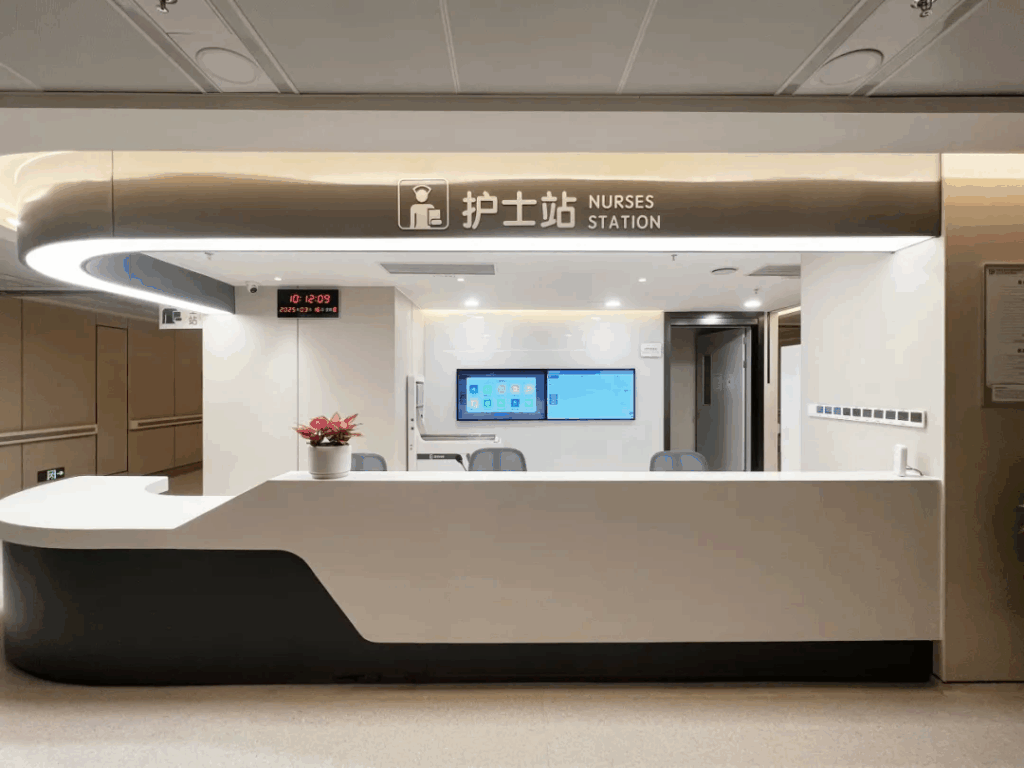
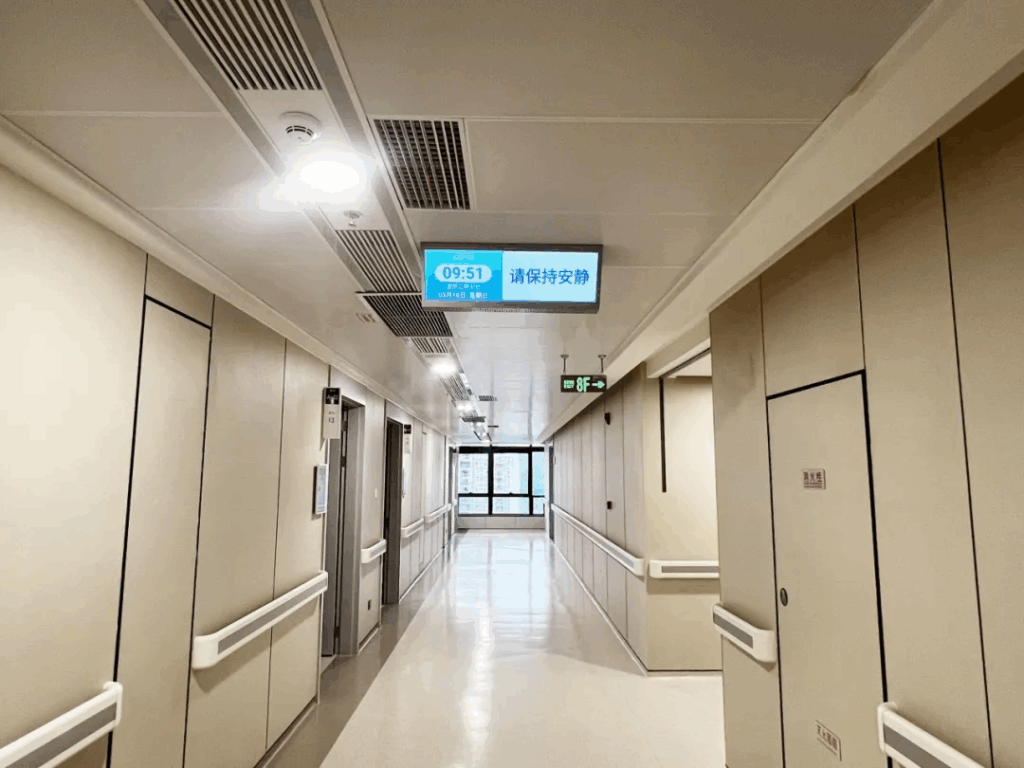
Patients can conveniently control the lighting, curtains, and other functions in the ward through the bedside intelligent interaction terminal. The system also supports one-click switching of scene modes, allowing for easy adjustment of the indoor environment and making the hospital stay more comfortable!


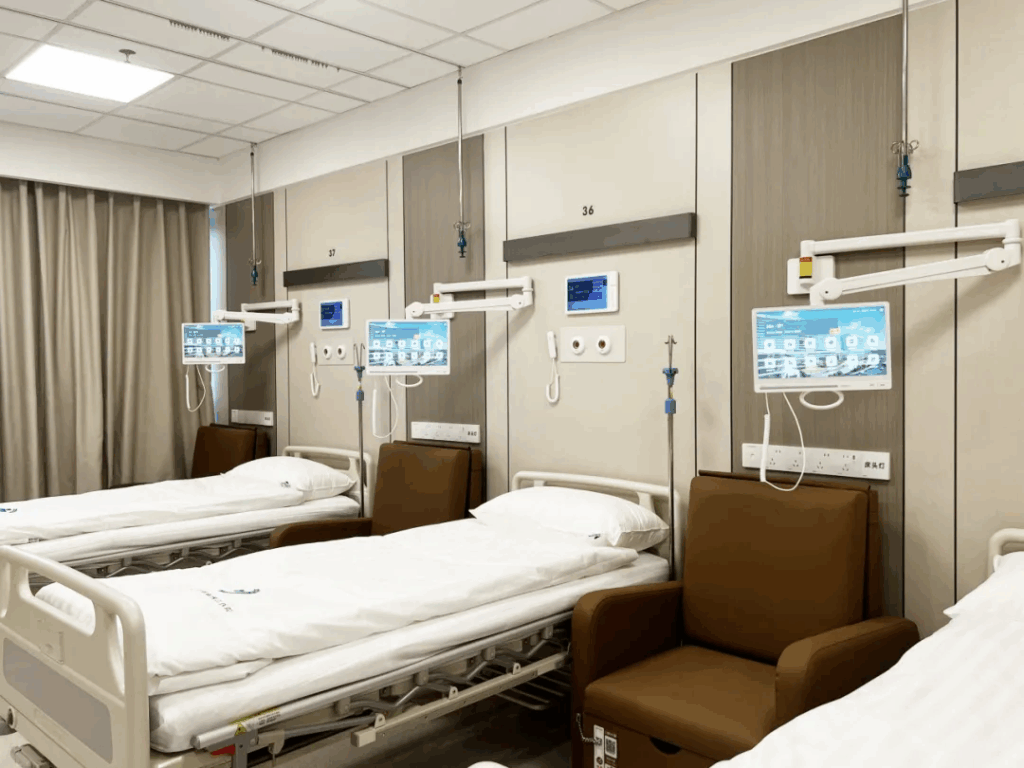
smart outpatient services
In the realm of smart outpatient services, the hospital has fully adopted Dinaic's intelligent triage and information release system. This system optimizes the outpatient process through information technology. After registration, the system arranges the order of visits based on the department, doctor, patient appointments, and on-site conditions. It informs patients of their visit information in real-time through various means, such as voice and display screens. Patients no longer need to crowd around the consultation room. They can comfortably rest in the waiting area and keep track of their queue status through on-site displays, reducing anxiety during the wait. For the hospital, the intelligent triage system effectively prevents disorderly queuing and crowding, maintaining outpatient order and improving doctors' consultation efficiency. This makes outpatient services more orderly and efficient, significantly enhancing the patient experience.
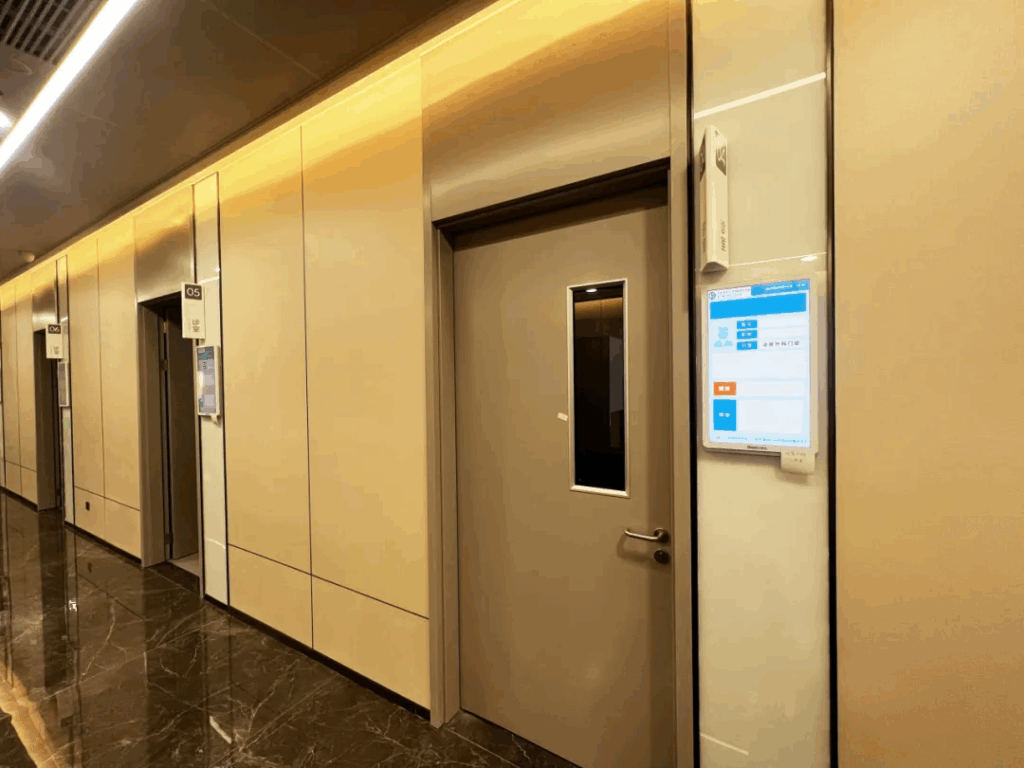
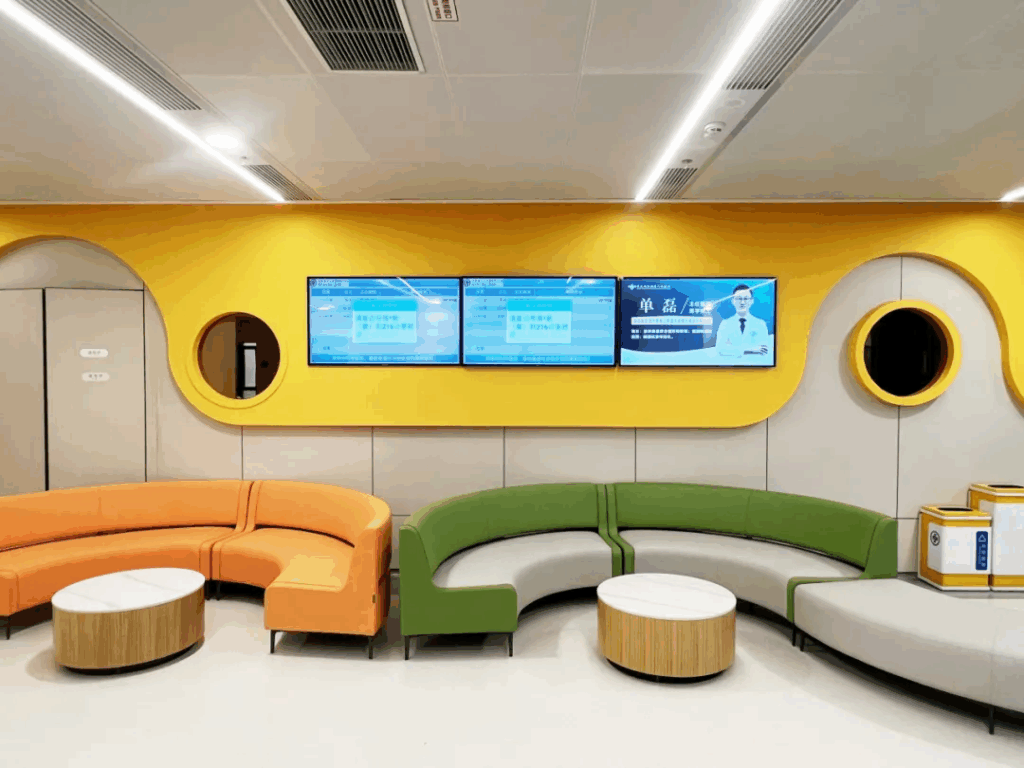
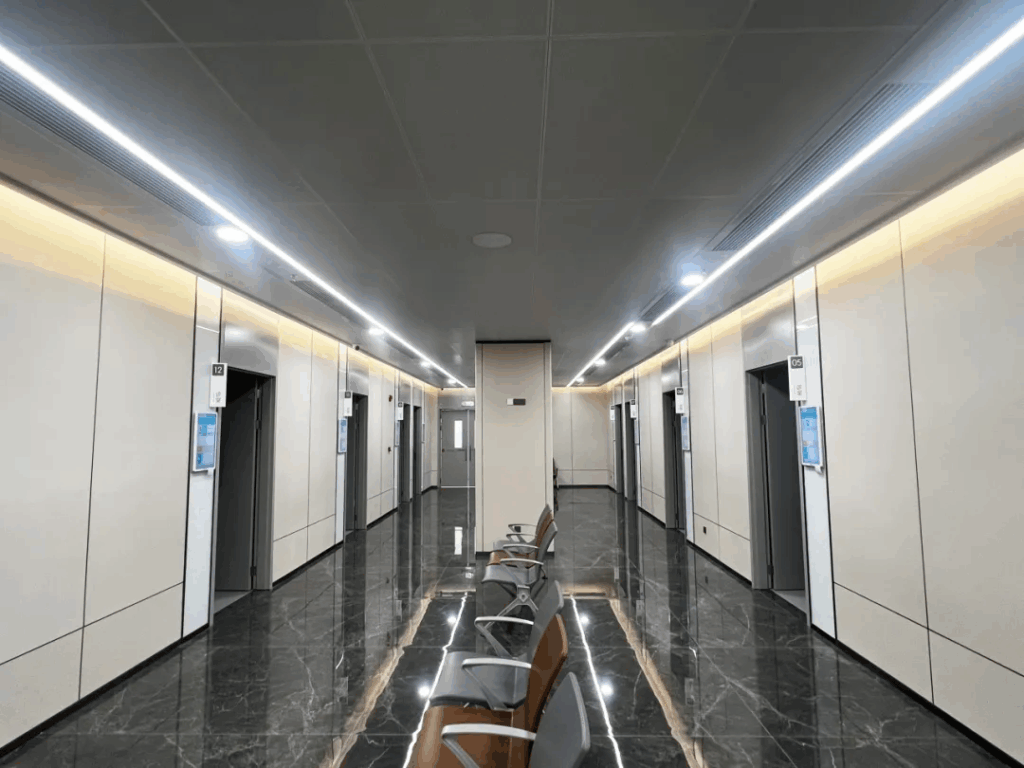
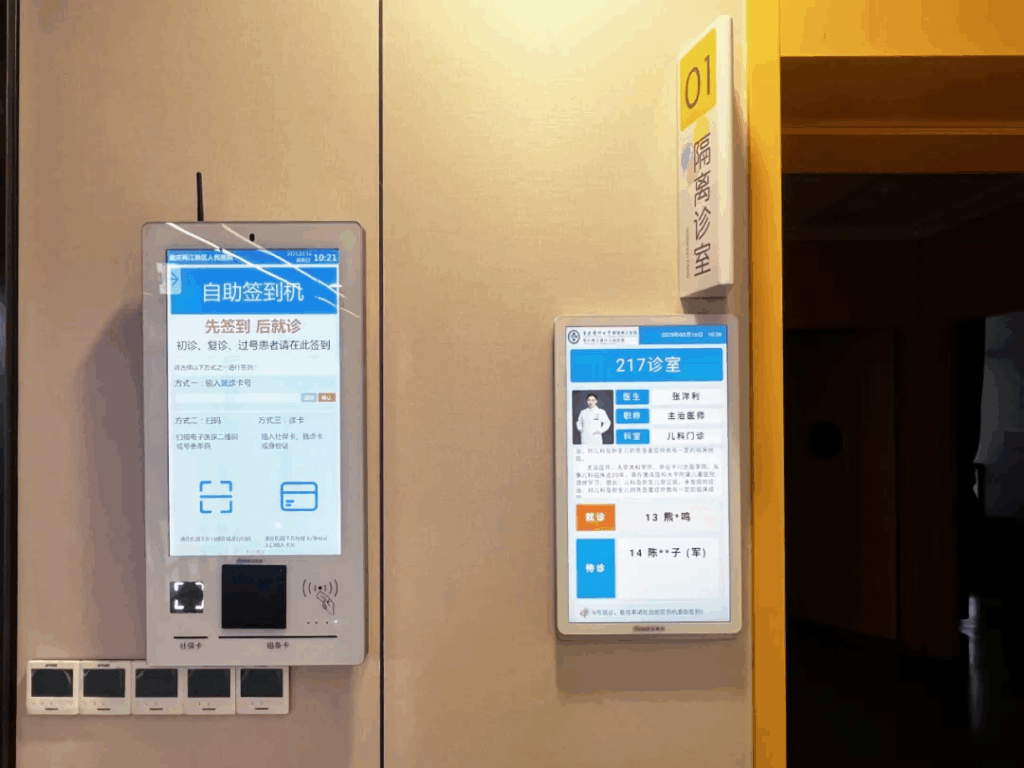
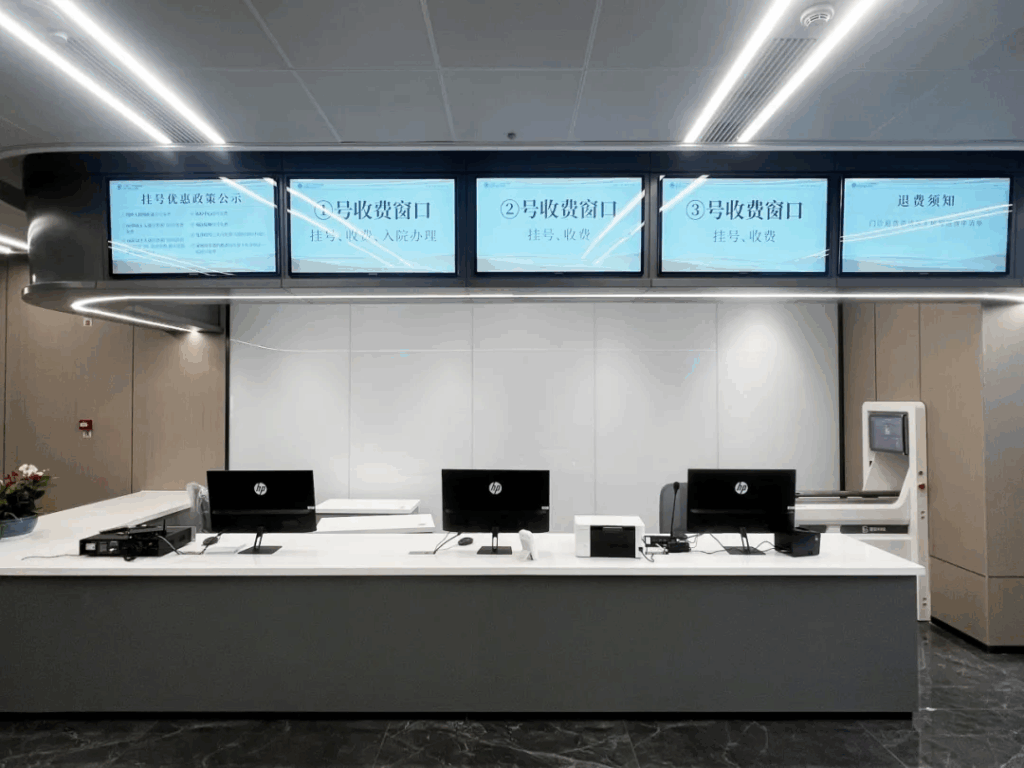
Looking Ahead,Dinaic will continue to uphold its innovative philosophy and maintain close cooperation with Chongqing Liangjiang New Area People's Hospital. Building on existing achievements, the company will continuously introduce cutting-edge technologies to expand the application scenarios of smart healthcare. Future developments may include OpenHarmony-based smart outpatient applications and AI nursing assistants, further promoting intelligent collaboration across various hospital departments and processes. The goal is to create a more convenient, efficient, and intelligent medical service system, contributing to the construction of a Healthy China.